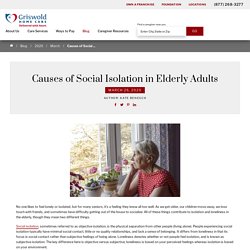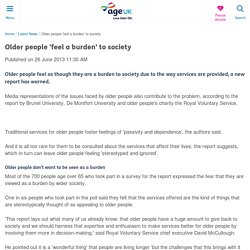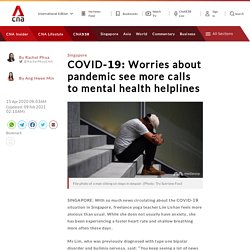

Defining Social Isolation. The difference between loneliness and isolation. Social isolation is different from loneliness. Reasons for Social Isolation in Elderly. Causes of Social Isolation in Elderly Adults. No one likes to feel lonely or isolated, but for many seniors, it’s a feeling they know all too well.

As we get older, our children move away, we lose touch with friends, and sometimes have difficulty getting out of the house to socialize. All of these things contribute to isolation and loneliness in the elderly, though they mean two different things. Social isolation, sometimes referred to as objective isolation, is the physical separation from other people (living alone). People experiencing social isolation typically have minimal social contact, little or no quality relationships, and lack a sense of belonging. It differs from loneliness in that its focus is social contact rather than subjective feelings of being alone. People are considered to be isolated if they live alone, never go out of the house, have no close relatives, never visit anyone, have no contact with neighbors, have no phone, or are alone for more than 9 hours a day. Download a Free Guide to Home Care Summary. Key learning points from the article: Causes of Social Isolation in Elderly Adults and the effects of it.
How does Social Isolation affect Elderly. The relation between social isolation and increasing suicide rates in the elderly. Older people 'feel a burden' to society. Older people feel as though they are a burden to society due to the way services are provided, a new report has warned.

Media representations of the issues faced by older people also contribute to the problem, according to the report by Brunel University, De Montfort University and older people's charity the Royal Voluntary Service. Traditional services for older people foster feelings of 'passivity and dependence', the authors said. And it is all too rare for them to be consulted about the services that affect their lives, the report suggests, which in turn can leave older people feeling 'stereotyped and ignored'. Older people don't want to be seen as a burden Most of the 700 people age over 65 who took part in a survey for the report expressed the fear that they are viewed as a burden by wider society.
One in six people who took part in the poll said they felt that the services offered are the kind of things that are stereotypically thought of as appealing to older people. Coronavirus: Elderly hit hard by social isolation amid circuit breaker measures, Health News. A needle and the television set - these two objects have been keeping 83-year-old Nellie Woo company from morning to night for the past week while she is holed up alone at home. She used to enjoy playing bingo and exercising with her elderly neighbours at the Senior Activity Centre (SAC) downstairs, as well as chatting with volunteers who visited her studio flat. Now that all activities for seniors - including home visits - have ceased due to strict circuit breaker measures, Madam Woo is feeling lonely and emotionally down.
She thinks about suicide sometimes, and has spent so much time staring at her patchwork and TV lately that her doctor had to give her antibiotics for dry eyes. For such elderly people, the ills that come with social isolation pose a significant health risk, say some seniors and social workers. Out of the 208,000 people who live alone in Singapore, at least a quarter of them are elderly. In 2016, there were 47,000 seniors aged 65 and above who lived by themselves. COVID-19: Worries about pandemic see more calls to mental health helplines. SINGAPORE: With so much news circulating about the COVID-19 situation in Singapore, freelance yoga teacher Lim Lishan feels more anxious than usual.

While she does not usually have anxiety, she has been experiencing a faster heart rate and shallow breathing more often these days. Ms Lim, who was previously diagnosed with type one bipolar disorder and bulimia nervosa, said: “You keep seeing a lot of news and you hear people around you always talking about it, so it does make you feel anxious. “And there are a lot of fears in people.
I feel like this virus has triggered a sense of uncertainty and insecurity, and made people panic more. I'm more sensitive in nature so I feel that it increases my anxiety level.”